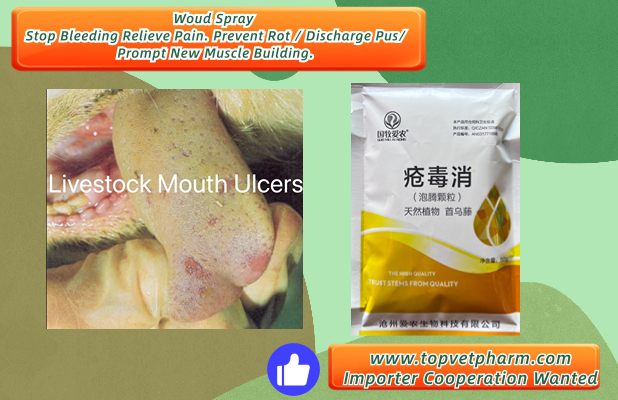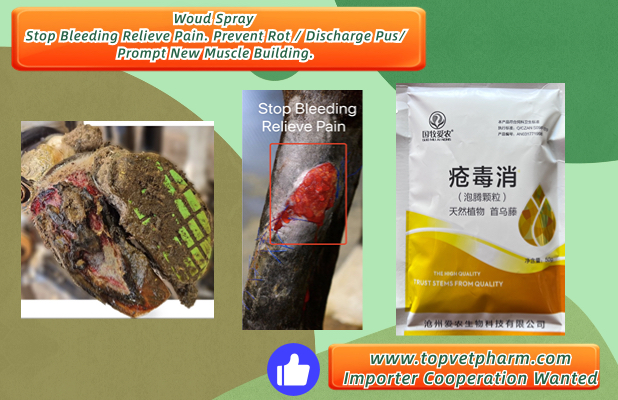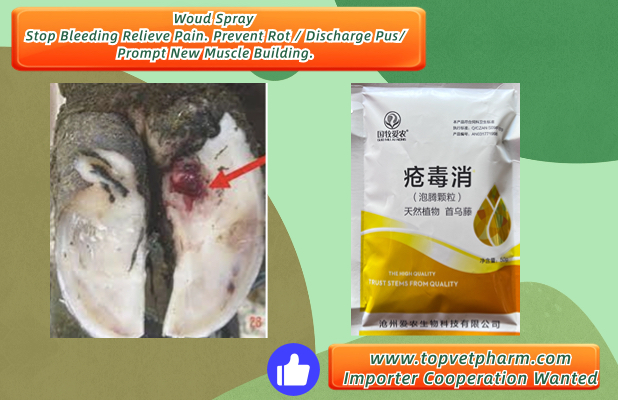Oct. 29 , 2023
Ulcers in cattle, including sole ulcers and other types of ulcers, can exhibit various symptoms. These symptoms may vary in severity, and the specific signs can depend on the type and location of the ulcer. Common symptoms of ulcers in cattle include:

1.Lameness: Lameness is a primary and often the most noticeable symptom. Cattle with ulcers may appear reluctant to move, have an abnormal gait, or favor one limb over another.
2.Reluctance to bear weight: Cattle with ulcers may avoid putting weight on the affected limb or hooves. They may stand with one hoof raised or take shorter steps.
3.Heat and swelling: The affected area may be warmer to the touch and may show signs of swelling and inflammation.
4.Pain and discomfort: Cattle with ulcers may exhibit signs of pain, such as restlessness, increased lying down, or vocalizations indicative of distress.
5.Hoof abnormalities: Depending on the type and location of the ulcer, there may be visible abnormalities in the affected hoof, including the sole, heel, or white line.
6.Reduced feed intake: Cattle in pain may eat less or exhibit reduced appetite, leading to weight loss.
7.Changes in lying behavior: Affected cattle may lie down more frequently or adopt unusual lying positions to alleviate discomfort.
8.Changes in posture: Cattle may shift their weight and adopt unnatural postures to alleviate pain or discomfort.

9. Treatment:
Suggest Use Wound Spray.
Indication:
Relieve pain / Stop bleeding / Remove pus / Fast swelling / Detoxification. Treat sores / rot and promote muscle growth.
Used for various causes of hoof and mouth ulcers, superficial skin injuries, ulcers, decay.
It's important to note that ulcers in cattle can vary in severity, and the symptoms may not be obvious in all cases. Early detection and prompt treatment are crucial to prevent the condition from worsening. If you suspect that your cattle may have ulcers, it's advisable to consult with a veterinarian or hoof care professional for a proper diagnosis and treatment plan.









